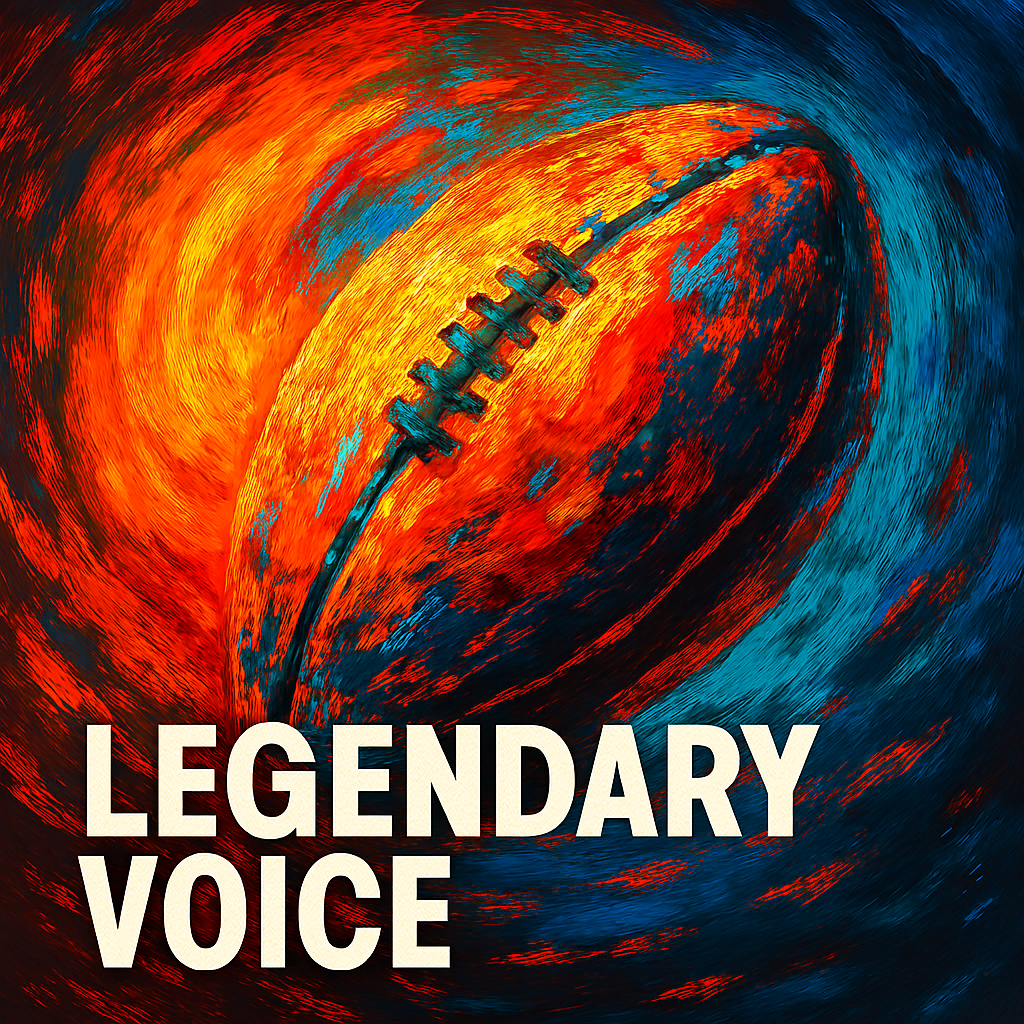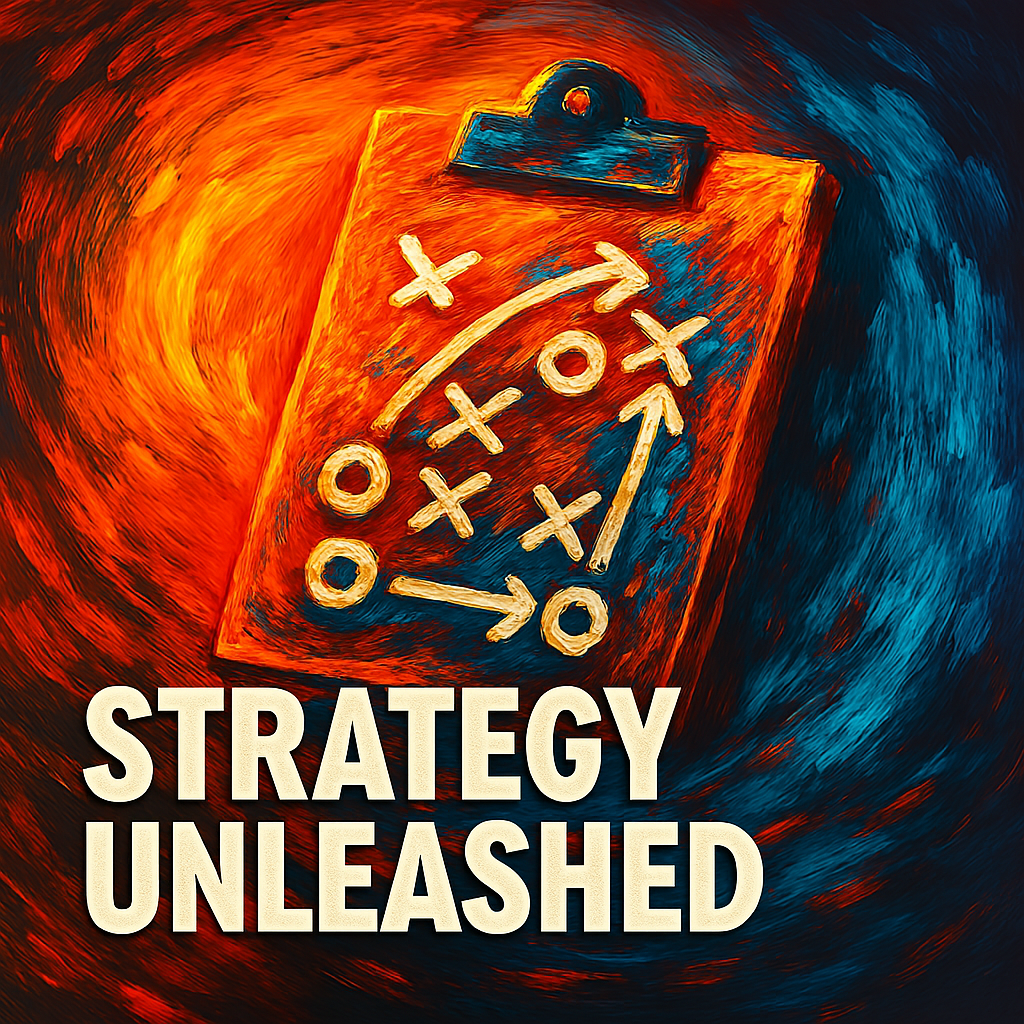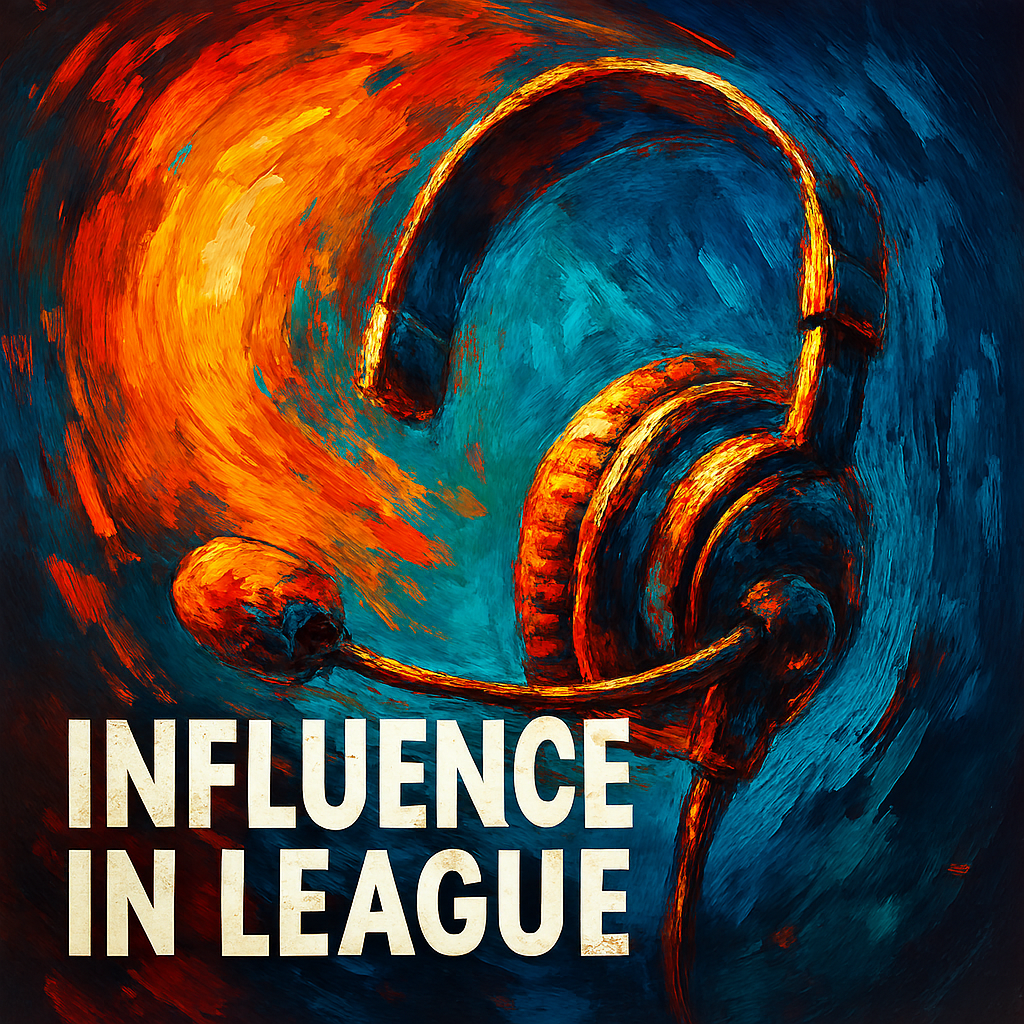Phil Gould – Powerful Architect Of Influence In Rugby League
Phil Gould
Phil Gould’s imprint on rugby league spans decades. He has evolved from a premiership-winning coach into an executive strategist and media heavyweight. Known affectionately as “Gus” – Gould is widely regarded as one of the most influential figures in the NRL’s modern era. His career began as a player in the 1970s – but it was his transition into coaching and commentary that cemented his legacy. Gould coached the Canterbury Bulldogs and Penrith Panthers to premiership success – notably leading Penrith to their first title in 1991.
His strategic mind and emotional intelligence made him a sought-after mentor and administrator. As a commentator – Gould’s style is polarising, passionate, theatrical, and deeply rooted in rugby league tradition. He frequently challenges refereeing interpretations and rule changes – sparking debate across fan bases. His dual role as Bulldogs general manager and Channel Nine commentator has drawn scrutiny from some quarters – yet his influence remains undiminished. Gould’s commentary is not just analysis – it is a ritual of storytelling, memory, and cultural critique. This post explores his multifaceted impact across fifteen deeply researched sections.
Early Playing Career
Phil Gould debuted in first-grade rugby league in 1976 with Penrith. He later played for Newtown, Canterbury, and South Sydney. His playing career was modest in statistics – but rich in tactical learning. Gould played as a lock forward – a position demanding vision, defensive leadership, and game awareness. His time under legendary coaches like Warren Ryan shaped his understanding of structure, tempo, and psychological momentum.
Gould’s cerebral approach to football began during these formative years – observing patterns and shifts in match dynamics. He retired from playing in 1986 and transitioned immediately into coaching. His final seasons were spent mentoring younger teammates – foreshadowing his future as a teacher of the game. Gould’s playing style was never flashy – but it was consistently intelligent and disciplined. His ability to read the game and anticipate opposition moves became a hallmark of his coaching philosophy. Though not a superstar on the field – his legacy as a thinker began with his boots on the ground.

Coaching Breakthroughs
Gould’s coaching career began with Canterbury in 1986 – where he quickly demonstrated tactical brilliance. He became the youngest coach to win a premiership in 1988 – leading the Bulldogs to victory with a disciplined, aggressive style. His move to Penrith in 1990 marked a turning point in his career. Gould guided the Panthers to their first-ever premiership in 1991 – a moment that remains iconic in club history. His coaching was defined by emotional intelligence and strategic clarity.
He understood the psychological needs of players and built trust through mentorship and consistency. Gould was known for simplifying complex strategies – making them accessible to players of varying experience levels. His teams were defensively sound and mentally resilient – often outperforming expectations. Gould’s coaching extended beyond tactics into leadership development and cultural transformation. He cultivated leadership within squads and empowered captains to take ownership of team dynamics. His success laid the foundation for future roles in administration and media – where his strategic mind continued to shape the game.
State of Origin Influence
Phil Gould’s impact on State of Origin is both profound and enduring. He coached New South Wales to six series wins between 1992 and 2004, making him the most successful Blues coach in Origin history. Gould approached Origin with a deep understanding of its emotional and symbolic weight. He used motivational techniques that blended historical references with personal storytelling, often delivering speeches that became part of rugby league folklore. His teams were known for their defensive grit and strategic discipline, consistently rising to the occasion against Queensland’s best. Gould introduced structured training camps and psychological preparation methods that were ahead of their time.
He managed egos with precision, unifying diverse personalities under a shared purpose. His influence extended beyond the dressing room, shaping the public narrative around Origin through media and commentary. Even after stepping down as coach, Gould remained a central figure in Origin discourse. His commentary continues to frame the emotional stakes of each series. Gould’s legacy in Origin is not just about wins—it’s about elevating the contest into a cultural ritual.
Penrith Panthers Legacy
Gould’s relationship with the Penrith Panthers is marked by transformation, vision, and controversy. After coaching the club to its first premiership in 1991, he returned in 2011 as general manager of football. His tenure focused on rebuilding the club’s junior pathways and long-term sustainability. Gould implemented a five-year plan aimed at restoring Penrith’s competitive edge through grassroots investment. He oversaw the development of the Panthers Academy, a state-of-the-art facility designed to nurture local talent.
Under his guidance, Penrith became a powerhouse of junior development, producing stars like Nathan Cleary, Isaah Yeo, and Jarome Luai. Gould’s strategic decisions were not without criticism, particularly around coaching appointments and player retention. However, his vision laid the groundwork for Penrith’s resurgence in the 2020s. The club’s back-to-back premierships in 2021 and 2022 were built on the foundations Gould helped establish. His legacy at Penrith is one of structural reform, cultural renewal, and long-term planning. Gould’s influence continues to echo through the club’s systems and philosophy.
Bulldogs Rebuild
In 2021, Phil Gould joined the Canterbury Bulldogs as general manager of football, returning to the club where he once coached. His appointment was part of a broader effort to revive a franchise that had struggled for consistency and identity. Gould immediately began restructuring the club’s football operations, focusing on recruitment, pathways, and internal culture.
He played a key role in attracting marquee signings like Viliame Kikau and Reed Mahoney, aiming to restore competitiveness. Gould emphasized the importance of junior development and community engagement, seeking to reconnect the club with its grassroots. His presence brought renewed media attention and optimism among fans. Gould’s strategic mind was evident in his handling of coaching transitions and roster management. He advocated for patience and long-term planning, resisting short-term fixes that had previously failed. The Bulldogs’ performance has shown gradual improvement, with signs of cohesion and resilience emerging. Gould’s influence is felt in the club’s renewed professionalism and cultural alignment. His role remains pivotal as the Bulldogs continue their journey back to prominence.

Gould’s Role in Making Rugby League More Inclusive
Phil Gould’s influence on rugby league extends beyond tactics and commentary—he has played a quiet but powerful role in making the sport more inclusive. While not always framed as activism, Gould’s decisions, language, and strategic vision have consistently supported broader access, representation, and emotional safety within the game.
At Penrith, Gould championed junior development programs that reached deep into Western Sydney’s multicultural communities. He understood that talent doesn’t emerge from privilege—it emerges from opportunity. By investing in grassroots systems and creating pathways for players from diverse backgrounds, Gould helped reshape the demographic makeup of elite rugby league. Players like Jarome Luai, Brian To’o, and Stephen Crichton are not just stars—they’re symbols of a more inclusive future that Gould helped architect.
Gould’s commentary also reflects this ethos. He often speaks with empathy about players’ personal journeys, cultural heritage, and emotional challenges. He avoids reductive stereotypes and instead frames players as complex individuals shaped by community, history, and resilience. His language invites viewers to see beyond the jersey—to understand the human story behind the athlete.
In administrative roles, Gould has pushed for reforms that support welfare, education, and post-career planning. He’s advocated for mental health resources and cultural sensitivity training, recognizing that inclusion isn’t just about who plays—it’s about how they’re supported. His strategic decisions often prioritize long-term wellbeing over short-term performance, creating safer environments for players to grow.
Gould’s inclusivity is also evident in his defense of rugby league’s emotional and cultural traditions. He resists over-commercialization and rule changes that alienate fans or erase the game’s working-class roots. By preserving the sport’s emotional architecture, Gould ensures that rugby league remains accessible—not just physically, but spiritually—to the communities that built it.
His legacy of inclusion is not loud or branded—it’s embedded in systems, language, and values. And it continues to shape the game in ways that are felt more than seen.
Gould and the NRLW
Phil Gould’s relationship with the women’s game in rugby league has evolved alongside the sport’s own rapid growth. While not always front-and-center in the public narrative, Gould has consistently acknowledged the importance of expanding rugby league’s reach to include female athletes, coaches, and commentators. His commentary often highlights the skill, intensity, and professionalism of NRLW players, framing their performances with the same emotional and tactical depth he applies to the men’s game.
Gould has used his media platform to advocate for increased investment in the women’s competition, calling for better scheduling, facilities, and pathways. He’s emphasized that the women’s game is not a sideshow—it’s a core part of rugby league’s future. His support has helped normalize the presence of female athletes in prime-time broadcasts, shifting public perception from novelty to legitimacy.
Importantly, Gould’s commentary avoids condescension. He doesn’t dilute his analysis when discussing NRLW matches. Instead, he treats the female game with the same strategic seriousness, often praising its technical precision and defensive structure. This parity in tone sends a clear message: the women’s game deserves respect, not tokenism.
Gould has also supported the rise of female voices in rugby league media. He’s publicly backed commentators like Allana Ferguson and Ruan Sims, recognizing their expertise and contribution to the sport’s storytelling. His influence has helped carve space for women not just on the field, but in the broader rugby league ecosystem.
While Gould may not be the face of NRLW advocacy, his consistent respect, strategic framing, and media amplification have played a quiet but meaningful role in legitimizing the women’s game. His voice helps ensure that rugby league’s future is inclusive, competitive, and emotionally resonant—regardless of gender.
Commentary Style
Phil Gould’s commentary style is unlike any other in rugby league. He blends theatrical delivery with deep tactical insight, often turning analysis into storytelling. Gould is known for his emotional monologues, particularly before State of Origin matches, where he sets the tone with poetic yet precise intensity which adds a psychological edge. His famous “I just have a feeling” line has become part of rugby league folklore. Gould’s commentary is rooted in tradition and memory, often referencing historical moments to contextualize current events.
He challenges refereeing decisions and rule changes with conviction, sparking debate among fans and officials. His delivery is passionate and unapologetically subjective, which some viewers find polarising. Gould’s strength lies in his ability to humanize the game, making it accessible to casual viewers while engaging seasoned fans. He often anticipates plays before they unfold, showcasing his deep understanding of game rhythm and structure. His commentary is not just reactive—it is predictive, reflective, and emotionally charged. Gould’s voice has become synonymous with rugby league’s biggest moments. Whether loved or critiqued, his presence in the commentary box is undeniably influential.
Media Influence
Beyond live commentary, Phil Gould’s media presence shapes rugby league discourse across platforms. He writes columns, appears on panel shows, and contributes to podcasts, offering analysis that blends strategic depth with cultural critique. Gould’s opinions often spark debate, especially when addressing rule changes, player welfare, or administrative decisions. His media style is assertive and unapologetic, grounded in decades of experience. Gould is not afraid to challenge the NRL’s leadership or question the direction of the game.
His critiques are often framed around tradition, integrity, and the emotional fabric of rugby league. He uses media as a tool for advocacy, pushing for reforms in junior development, concussion protocols, and officiating standards. Gould’s influence extends to shaping public perception of clubs, coaches, and players. His commentary can elevate a rising star or scrutinize a struggling team with equal intensity. Media outlets value his presence for the gravitas and engagement he brings. Gould’s media legacy is one of fearless commentary, strategic foresight, and cultural stewardship.
Strategic Mindset
Phil Gould’s strategic mindset has shaped multiple dimensions of rugby league, from coaching systems to club governance. He is known for long-term planning rather than reactive decision-making. Gould often speaks about building “systems that last,” emphasizing the importance of junior development, coaching continuity, and cultural alignment. His five-year plan at Penrith became a blueprint for sustainable success, focusing on infrastructure and identity rather than short-term wins.
Gould’s strategic thinking also extends to recruitment, where he prioritizes character and leadership alongside talent. He believes in nurturing future captains and mentors, not just star performers. His influence is evident in how clubs now approach succession planning and player pathways. Gould’s ability to forecast trends—such as the rise of mobile forwards or the evolution of spine combinations—has kept him ahead of the curve. He often critiques clubs that chase headlines instead of building foundations. His strategic lens is not limited to football operations—it includes media, fan engagement, and league-wide reform. Gould’s legacy as a strategist is defined by foresight, patience, and structural clarity.

Player Development Philosophy
Gould’s philosophy on player development is rooted in mentorship, emotional intelligence, and holistic growth. He believes that young players need more than technical drills—they need guidance, trust, and psychological safety. Gould often speaks about the importance of “teaching the person before the player,” emphasizing character-building as a foundation for performance.
At Penrith, he championed programs that integrated education, community service, and leadership training into the football curriculum. He has consistently advocated for better welfare systems, including mental health support and post-career planning. Gould’s approach to development includes early identification of leadership traits, not just athletic potential. He encourages clubs to invest in long-term relationships with players, rather than transactional contracts. His mentorship of players like Nathan Cleary reflects this philosophy—building trust over years, not weeks. Gould also supports the idea of “slow burn” development, resisting the pressure to rush young talent into first grade. His influence has helped shift the NRL’s culture toward more sustainable and ethical player management.
Cultural Stewardship
Phil Gould sees rugby league as more than a sport—it is a cultural institution. He often speaks about the game’s role in working-class identity, community cohesion, and national storytelling. Gould’s commentary frequently invokes historical moments, legendary figures, and emotional rituals that define rugby league’s soul. He has criticized decisions that, in his view, erode the game’s cultural integrity—such as excessive rule changes or commercial overreach.
Gould believes that rugby league must honor its roots while evolving responsibly. His stewardship includes defending traditional clubs, advocating for regional development, and preserving the emotional weight of rivalries. He has pushed for more Indigenous representation and recognition within the game’s narrative. Gould’s cultural lens also informs his media work, where he frames matches as chapters in a larger story. He sees commentary as a form of cultural archiving, preserving the game’s memory for future generations. His influence has helped maintain rugby league’s emotional resonance in an increasingly commercial landscape.
Administrative Impact
Gould’s administrative roles have reshaped how clubs and the NRL approach governance, recruitment, and strategic planning. As general manager at Penrith and Canterbury, he introduced systems that emphasized transparency, accountability, and long-term vision. Gould often critiques administrative decisions that prioritize optics over substance. He has called for reforms in salary cap management, junior pathways, and club licensing. His influence extends to board-level conversations, where he advocates for football-first decision-making.
Gould’s administrative style is hands-on but principled—he engages with coaches, players, and support staff while maintaining strategic oversight. He has helped clubs navigate crises, rebuild reputations, and restore competitive balance. Gould’s presence in administrative circles brings gravitas and historical perspective, often grounding debates in lived experience. His impact is felt in how clubs now structure their football departments, with clearer roles and performance metrics. Gould’s administrative legacy is one of reform, resilience, and football-centric governance.
Mentorship and Influence on Coaches
Phil Gould’s mentorship extends beyond players to coaches, many of whom credit him with shaping their philosophies and careers. He has worked closely with figures like Brad Fittler, Trent Barrett, and Ivan Cleary, offering strategic guidance and emotional support. Gould’s approach to coaching mentorship is rooted in dialogue, reflection, and tactical clarity. He encourages coaches to develop their own voice while grounding decisions in long-term vision. His influence is evident in how modern coaches manage game tempo, player welfare, and media pressure. Gould often acts as a sounding board during crises, helping coaches navigate public scrutiny and internal challenges.
His mentorship includes sharing historical context, tactical frameworks, and psychological insights. Gould believes that coaching is as much about managing people as it is about managing plays. He has helped redefine the role of the coach in the NRL, emphasizing leadership, adaptability, and cultural stewardship. His legacy includes a generation of coaches who see the game through a broader, more strategic lens.
Impact on Rule Interpretation
Phil Gould has been one of the most vocal commentators on rule changes and interpretations in the NRL. He frequently critiques shifts in officiating standards, arguing that some changes compromise the game’s flow and integrity. Gould’s commentary on rules is grounded in historical precedent and player experience. He often references how past eras handled similar situations, offering a comparative lens that challenges current trends.
His critiques have influenced public discourse and occasionally prompted league reviews. Gould is particularly concerned with rules that affect defensive structure, play-the-ball speed, and obstruction calls. He believes that over-regulation can dilute the game’s natural rhythm and emotional intensity. His commentary has sparked debates among fans, referees, and administrators, highlighting the tension between tradition and innovation. Gould’s impact on rule interpretation is not just reactive—it is proactive, shaping how rules are understood and applied. His voice remains a critical part of the game’s regulatory evolution.
Emotional Intelligence in Leadership
One of Phil Gould’s defining traits is his emotional intelligence, which informs his leadership style across coaching, commentary, and administration. He understands the emotional landscape of rugby league—the pressure, the pride, the pain—and uses that understanding to connect with players, coaches, and fans. Gould’s speeches often tap into collective memory and shared values, creating emotional resonance that transcends tactics.
He is skilled at reading group dynamics and adjusting his approach to suit the moment. Whether calming a dressing room or energizing a broadcast, Gould’s emotional intelligence allows him to lead with authenticity. He values vulnerability and honesty, encouraging others to express doubt, fear, and ambition. His leadership is not authoritarian—it is relational, built on trust and empathy. Gould’s emotional intelligence has helped him navigate controversies, rebuild cultures, and inspire loyalty. It is a key reason why his influence endures across generations and contexts.

Advocacy for Grassroots Rugby League
Phil Gould has long championed the importance of grassroots rugby league, arguing that the game’s future depends on strong community foundations. He has pushed for increased funding, better facilities, and more structured development pathways at the junior level. Gould believes that every elite player begins as a local kid with a dream, and that nurturing those dreams requires systemic support.
His work at Penrith and Canterbury included building academies, mentoring junior coaches, and strengthening ties with local clubs. Gould often uses his media platform to highlight grassroots issues, from declining participation rates to inequities in regional access. He has called for reforms in school competitions, talent identification, and coaching accreditation. Gould’s advocacy is driven by a belief that rugby league must remain accessible, inclusive, and community-driven. His efforts have helped elevate grassroots rugby league into the national conversation, reminding stakeholders that the game’s soul lives in its suburbs and small towns.
Influence on Rugby League Narrative
Phil Gould’s influence on how rugby league is narrated and remembered is profound. He has helped shape the language, tone, and emotional framing of the sport’s biggest moments. Gould’s commentary is not just technical—it is poetic, reflective, and culturally anchored. He often invokes themes of redemption, rivalry, and legacy, turning matches into stories with emotional depth.
His pre-Origin monologues are legendary, setting the stage with gravitas and historical context. Gould’s narrative style has influenced other commentators, journalists, and even club media teams. He treats rugby league as a living story, with each season adding new chapters to a collective memory. His ability to connect past and present gives fans a sense of continuity and meaning. Gould’s influence on narrative extends to how players are portrayed, how rivalries are framed, and how the game’s values are articulated. He is not just a voice in the booth—he is a storyteller shaping the emotional architecture of rugby league.
Public Perception
Phil Gould’s public perception is complex and often polarising. He is admired for his passion, intelligence, and commitment to the game, but also critiqued for his bluntness and perceived biases. Gould’s commentary style invites strong reactions—some fans see him as a guardian of tradition, while others view him as resistant to change. His dual roles in media and club administration have sparked debates about conflict of interest, especially when discussing teams he is affiliated with. Gould addresses these concerns openly, arguing that transparency and honesty are his guiding principles.
His public persona is shaped by decades of visibility, from coaching press conferences to prime-time broadcasts. Gould is not afraid to challenge authority, question referees, or critique league policies, which earns him both respect and criticism. He remains one of the most quoted and discussed figures in rugby league media. Gould’s public image is defined by authenticity, emotional depth, and a refusal to conform to sanitized narratives.
Gould’s Fantastic Language
Phil Gould’s language is a performance in itself—layered, theatrical, and emotionally charged. He doesn’t just commentate; he narrates rugby league as if it were myth, memory, and prophecy all at once. His phrasing often defies conventional sports commentary, leaning into metaphor, cadence, and rhythm. Gould is known for opening Origin broadcasts with poetic monologues that feel more like spoken-word rituals than pre-game analysis. Lines like “I just have a feeling…” have become iconic not because they predict outcomes, but because they evoke tension, anticipation, and emotional depth.
Gould’s vocabulary is rich with symbolic weight. He speaks of “momentum shifts,” “emotional scars,” and “the theatre of rugby league” as if describing a Shakespearean drama. His use of repetition, pause, and emphasis creates a hypnotic rhythm that draws listeners into the emotional undercurrents of the game. He often blends tactical insight with cultural commentary, turning a simple play into a reflection of team identity or historical rivalry.
What sets Gould apart is his ability to elevate the ordinary. A tackle becomes a turning point. A missed opportunity becomes a lesson in resilience. His language is not just descriptive—it’s transformative. He gives shape to the intangible forces that define rugby league: pressure, pride, fear, and hope. Gould’s voice carries the weight of memory and the urgency of the moment, making each broadcast feel like a chapter in a living epic.
Whether you agree with his takes or not, Gould’s language leaves an imprint. It’s theatrical without being hollow, emotional without being sentimental, and strategic without losing its soul. His words don’t just describe the game—they deepen it.
Legacy and Influence
Phil Gould’s legacy in rugby league is vast, multifaceted, and still evolving. He has won premierships, shaped clubs, mentored generations, and narrated the game’s biggest moments.
His influence spans coaching, commentary, administration, and cultural stewardship. Gould’s fingerprints are on the systems that produce today’s stars, the narratives that frame each season, and the reforms that shape the league’s future. He is a bridge between eras—connecting the grit of the 1980s with the complexity of the modern game. Gould’s legacy is not just in trophies or titles—it is in the emotional architecture of rugby league. He has helped define what the game means to its players, fans, and communities. His impact will be felt long after he steps away from commentary or club roles. Gould’s legacy is one of vision, voice, and values.
Gould’s Public Speaking – Reaching the Next Generation
Phil Gould’s public speaking, especially when addressing students and younger audiences, carries the same emotional clarity and strategic depth that defines his commentary. He doesn’t lecture—he connects. Whether speaking at schools, junior academies, or community events, Gould brings a sense of authenticity that resonates with young people navigating sport, identity, and ambition.
His talks often center on resilience, leadership, and emotional intelligence. Gould doesn’t just tell young athletes how to win—he explains how to grow. He shares stories from his own journey, including setbacks, doubts, and turning points, framing them as lessons rather than trophies. This vulnerability makes his message relatable and powerful. He speaks not as a distant expert, but as someone who’s lived the highs and lows of competitive sport.
Gould emphasizes the importance of character over talent. He encourages students to be curious, to ask questions, and to build trust with mentors. His advice often includes practical wisdom—how to handle pressure, how to recover from failure, and how to lead with empathy. He challenges young people to think beyond the field, to see sport as a platform for personal growth and community impact.
Importantly, Gould’s tone with younger audiences is inclusive and empowering. He avoids jargon and elitism, choosing language that invites rather than excludes. He speaks to the emotional reality of being young in a competitive world, offering guidance that’s both strategic and compassionate.
His presence at junior events and school programs reinforces his belief that the future of rugby league—and sport more broadly—depends on nurturing not just skill, but spirit. Gould’s public speaking is a form of mentorship, a way of passing down values that keep the game grounded, inclusive, and emotionally intelligent. For many young listeners, his words become a compass—not just for sport, but for life.
Why Other Sports Could Benefit from a Voice Like Gould’s
Phil Gould’s commentary style is not just unique to rugby league—it’s a blueprint for how sports broadcasting can elevate emotional engagement, cultural depth, and strategic clarity. His ability to blend tactical insight with poetic language creates a narrative experience that transcends the scoreboard. In sports like AFL, cricket, or even football, where tradition and emotion run deep, a commentator with Gould’s sensibility could transform how fans connect with the game.
Gould doesn’t just describe what’s happening—he interprets why it matters. His commentary is rooted in empathy, memory, and respect for the sport’s soul. He avoids judgmental tones, rarely ridiculing players or coaches, even in moments of error. Instead, he contextualizes mistakes as part of the human drama of competition. This lack of harsh judgment fosters a culture of understanding and reflection, rather than blame.
In an era where sports commentary often veers into sensationalism or clickbait analysis, Gould’s approach keeps the game grounded. He reminds viewers that rugby league is not just entertainment—it’s a ritual, a community, a legacy. His voice acts as a stabilizer, preserving the emotional integrity of the sport even amid rule changes, commercial pressures, and media noise.
Other sports could benefit immensely from this kind of stewardship. A Gould-like figure in cricket could reframe slow passages of play as psychological duels. In football, such a voice could elevate tactical shifts into cultural narratives. His style proves that commentary can be both analytical and emotionally intelligent—without sacrificing clarity or excitement.

Gould’s Achievements – A Legacy in Numbers and Impact
Here’s a table summarizing Phil Gould’s most notable achievements across coaching, administration, and media:
| Domain | Achievement |
|---|---|
| Playing Career | First-grade debut in 1976 with Penrith Panthers |
| Coaching | Youngest coach to win an NRL premiership (Canterbury Bulldogs, 1988) |
| Coaching | Led Penrith Panthers to their first-ever premiership (1991) |
| State of Origin | Most successful NSW coach with 6 series wins (1992–2004) |
| Administration | Architect of Penrith’s junior development system and Panthers Academy |
| Administration | General Manager of Football at Penrith (2011–2019) and Canterbury (2021–present) |
| Media | Lead commentator for Channel Nine’s NRL coverage |
| Media | Iconic pre-Origin monologues and tactical breakdowns |
| Cultural Impact | Elevated rugby league commentary into emotional and strategic storytelling |
| Legacy | Influenced multiple generations of players, coaches, and commentators |
Gould and the Future of Rugby League
Phil Gould hasn’t just influenced rugby league—he’s reshaped its trajectory. His strategic decisions, cultural stewardship, and emotional intelligence have altered how the game is played, managed, and understood. Gould’s legacy is not confined to premierships or commentary soundbites. It lives in the systems he built, the values he defended, and the futures he made possible.
At Penrith, Gould’s five-year plan was more than a slogan—it was a structural overhaul. He reimagined junior development as a long-term investment, not a short-term fix. The Panthers Academy became a model for other clubs, proving that sustainable success begins with infrastructure, education, and emotional support. The ripple effect of that vision is visible in Penrith’s dominance today, with homegrown talent leading the charge.
Gould also changed how clubs think about culture. He emphasized trust, leadership, and psychological safety as pillars of performance. His influence helped shift the NRL away from transactional recruitment and toward holistic player development. Clubs now talk about “systems,” “identity,” and “resilience”—terms Gould embedded into the sport’s vocabulary.
In media, Gould redefined commentary as cultural narration. He turned broadcasts into emotional rituals, framing matches as chapters in a larger story. This approach deepened fan engagement and elevated the game’s emotional resonance. His voice became a bridge between eras, connecting the grit of the past with the complexity of the present.
Gould’s impact on governance is equally profound. He has advocated for reforms in concussion protocols, junior pathways, and officiating standards. His critiques often spark league-wide reflection, pushing administrators to consider the game’s long-term health. Gould doesn’t just react—he provokes strategic thinking.
Conclusion – A Living Archive of Rugby League
Phil Gould is more than a commentator or coach—he is a living archive of rugby league’s soul. His career reflects the game’s evolution, its tensions, and its triumphs. Gould’s voice carries the weight of memory, strategy, and emotional truth. Whether in the dressing room, the boardroom, or the broadcast booth, he brings clarity and conviction. His legacy is not static—it continues to shape how rugby league is played, understood, and remembered. Gould remains one of the game’s most essential figures, a steward of its past and a provocateur of its future.
Join the Discussion
What do you think about Phil Gould’s impact on rugby league? Has his commentary shaped your view of the game? Share your thoughts and stories below—let’s keep the conversation going.
Hashtags
#PhilGould #NRLLegend #RugbyLeagueHistory #GusGould #NRLCommentary #StateOfOrigin #PenrithPanthers #CanterburyBulldogs #NRLStrategy #RugbyLeagueCulture #NRL2025 #LeagueLegacy #GouldEffect #NRLMedia #RugbyLeagueVoice







An outstanding share! I’ve just forwarded this onto a coworker who had been conducting
a little homework on this. And he in fact bought me dinner because I found it
for him… lol. So allow me to reword this….
Thanks for the meal!! But yeah, thanks for spending some time to
discuss this subject here on your blog.